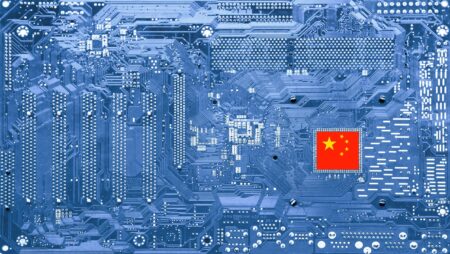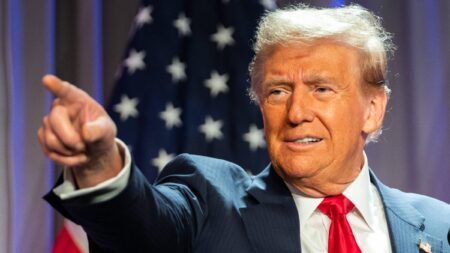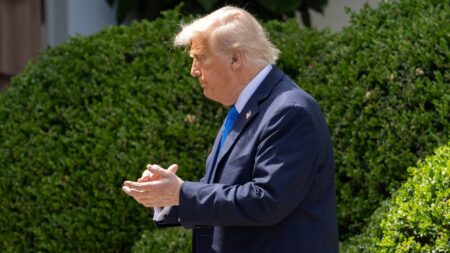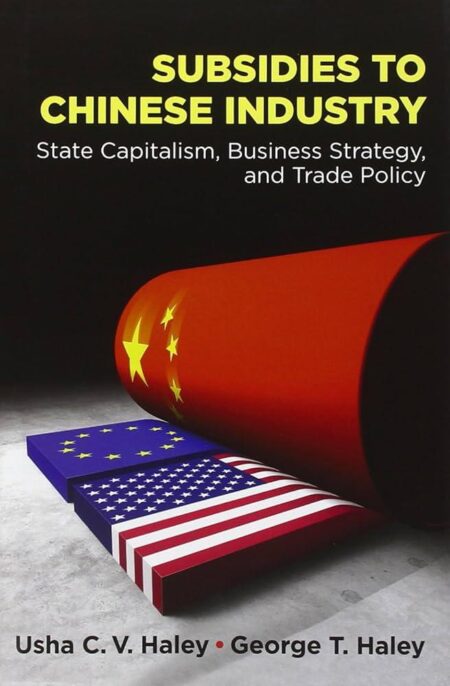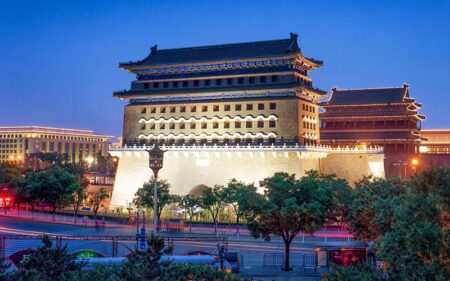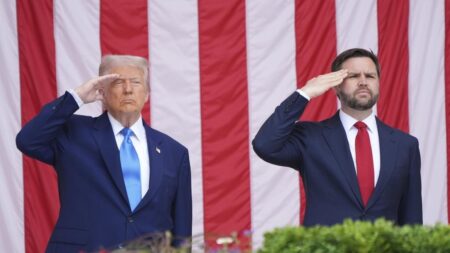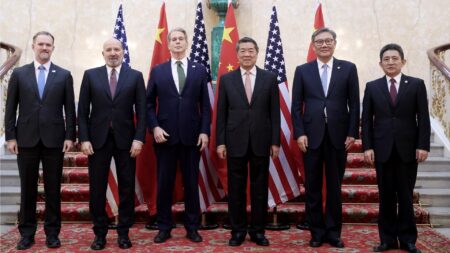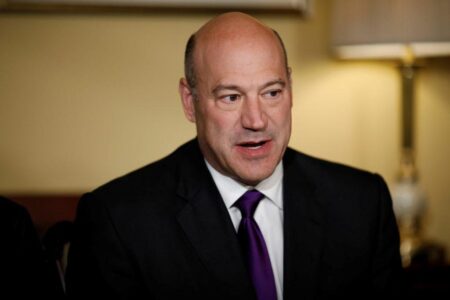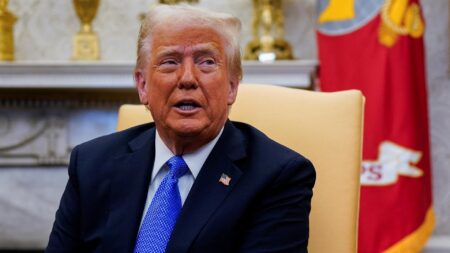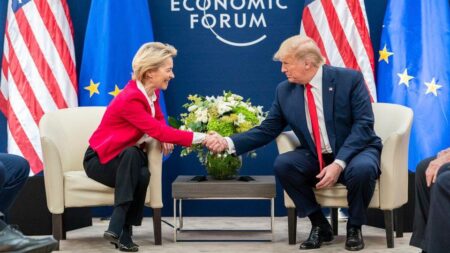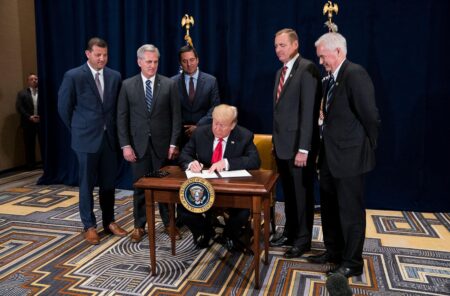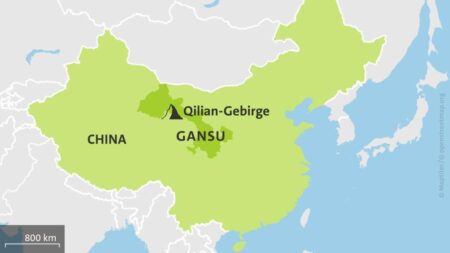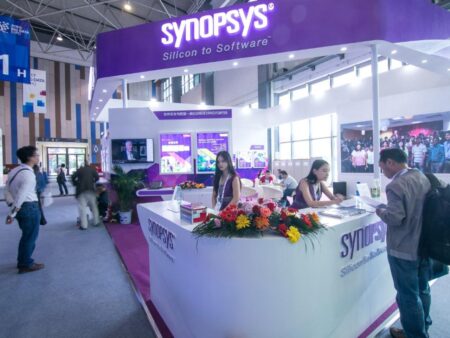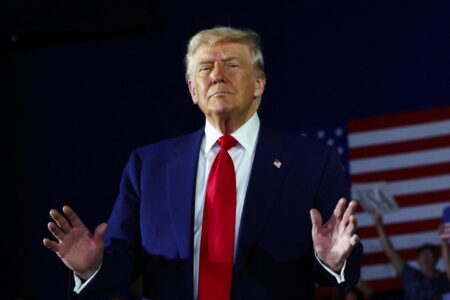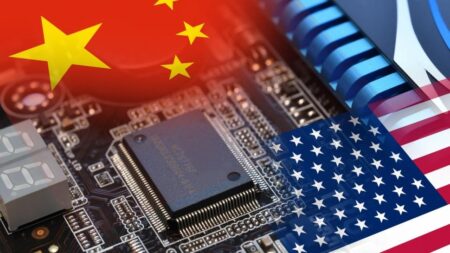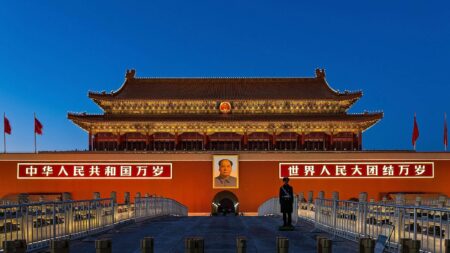China’s $50 billion chip fund is boldly reshaping its strategy to outmaneuver US restrictions, focusing fiercely on self-reliance and homegrown technological breakthroughs. This dynamic pivot aims to dramatically reduce reliance on foreign semiconductor supplies amid rising trade tensions
Browsing: US-China relations
Trump’s envoy to China raises a red flag on growing dangers in foreign supply chains, calling for a bold strategic overhaul to reduce reliance. This urgent warning highlights escalating economic tensions in an increasingly unpredictable global trade environment
In the ongoing U.S.-China trade talks, Beijing masterfully balances boldness with diplomacy, aiming to secure favorable terms while carefully managing tensions. This strategic approach highlights China’s commitment to maintaining the delicate economic partnership without sparking disruption
President Trump highlighted encouraging strides in U.S.-China relations during a recent statement, igniting hope even as specific details remain under wraps. At the same time, experts urge caution, emphasizing that crucial agreements and timelines are still unclear
In a recent WSJ opinion piece, experts argue that former President Trump’s trade strategy with China is riddled with confusion and inconsistency. Critics caution that such unpredictable policies risk undermining the U.S. economy and diminishing its influence worldwide
China has announced it will eliminate tariffs on almost all goods from Africa, strengthening trade ties as both parties push back against US policies. This bold step seeks to ignite economic cooperation in the face of escalating global tensions
Former President Donald Trump enthusiastically hailed a breakthrough “deal” with China, highlighting major progress on tariffs and promising ongoing talks. Yet, skeptics remain doubtful about the real impact and long-term value of the agreement
Former President Trump unveiled a bold new strategy: securing magnets and rare earth minerals from China while simultaneously slapping tariffs on Chinese goods at a staggering 55%. This move signals a daring and complex shift in the US trade policy and supply chain approach
China’s Vice Premier Li revealed that China and the U.S. have crafted an initial framework to tackle trade issues. He also confirmed plans to brief top leaders on the latest developments, Reuters reports
A Trump economic adviser expressed strong confidence Monday that a trade deal with China is on the verge of being finalized, highlighting significant progress in the talks despite ongoing tensions. While key details are still being ironed out, an agreement could be reached very soon
Border officials have intercepted a massive shipment of Chinese chemicals linked to CCP-backed networks, revealing Beijing’s bold and multifaceted tactics to undermine U.S. security and economic interests, Fox News reports
Former President Donald Trump’s escalating hostility toward China is raising urgent alarm among experts. Analysts warn that his aggressive approach could destabilize global order and ignite significant economic and geopolitical turmoil
Former President Donald Trump described Chinese President Xi Jinping as “hard to make a deal with,” highlighting the ongoing challenges in U.S.-China trade negotiations, Al Jazeera reports
The Trump administration has chosen to postpone the implementation of a 25% tariff on Chinese-made graphics cards. This strategic decision aims to ease supply chain pressures amid soaring demand for semiconductor components
Former President Donald Trump has accused China of breaking their trade agreement and announced a bold plan to double tariffs on steel and aluminum imports, intensifying the trade war between these two economic powerhouses
Exclusive: Synopsys has stopped all sales to China following the latest US export restrictions, according to an internal memo obtained by Reuters. This decision underscores the rising tech rivalry between Washington and Beijing
Former President Donald Trump claims that China has “totally violated” the tariff pause agreement, accusing Beijing of breaking its trade commitments. This bold accusation intensifies the already heated US-China trade negotiations, Axios reports
The US is gearing up to intensify tech sanctions on China, zeroing in on subsidiaries of blacklisted companies, Bloomberg reports. This bold step seeks to strengthen export controls and block China’s access to critical technologies
The US has rolled out fresh restrictions on shipments of chip design software, advanced chemicals, and other vital technologies to China, seeking to slow down Beijing’s booming semiconductor industry amid escalating geopolitical tensions, Reuters reports
China’s bold decision to breathe new life into a World War II airfield in the Caribbean has ignited a wave of concern across the U.S. This development could dramatically alter regional dynamics, prompting serious questions about Beijing’s ambitions right in America’s backyard. Diplomats and defense analysts are on high alert, closely monitoring the unfolding situation

